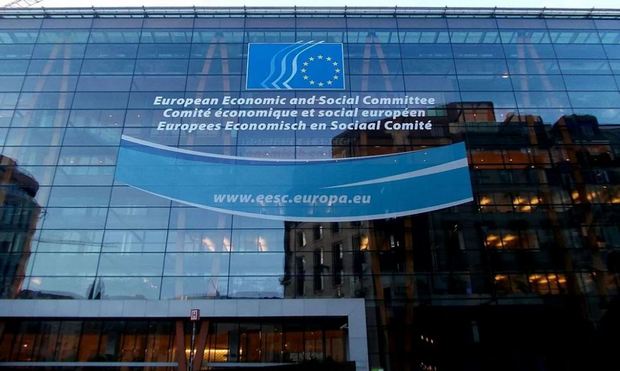EU advisory body calls for 2030 ban of GWPs over five for heat pumps, room ACs, chillers and refrigeration

The European Economic and Social Committee (EESC), a key EU advisory body, has released its opinion on the proposed EU F-gas Regulation, calling for a ban on all refrigerants with a GWP above five in new heat pumps, room air conditioners, chillers and refrigeration applications as of 2030.
The opinions of this body are taken into consideration in the negotiations between the European Commission (EC), Council of the EU and Parliament. It thus has a key role to play in the EU’s decision-making process.
The opinion was drafted by Kęstutis Kupšys, rapporteur on the F-gas Regulation and representative of the Alliance of Lithuanian Consumer Organisations. The opinion was adopted with 140 votes in favor, 1 against and 6 abstentions.
The EESC also calls for banning the use of high-GWP refrigerants (such as R404a), setting a 150-GWP cap across all technologies, promoting incentive schemes and public procurement for f-gas-free alternatives and helping EU Member States incentivize greener solutions with very low GWP and free of f-gases where possible.
While the EESC welcomes the EC-proposed EU F-gas Regulation, it believes further ambition can be deployed to “maintain the global EU leadership in climate action.” The Committee asserts that the revision of this regulation is a chance to “significantly reduce direct climate impacts by promoting natural solutions with a low global warming potential (GWP) instead of continuing to use hydrofluorocarbons (HFCs) with a high global warming potential.”
The EESC also notes that it is “extremely important to promote shifting directly to the lowest-GWP f-gas-free solution, avoiding intermediate solutions. EU markets demonstrate that this is feasible, and the EU should lead by example.”
The EESC also calls attention to the challenges of operating with “any kind of f-gases blends, even low-GWP ones,” as they make recycling, reclamation, maintenance and servicing more complex.
In response to concerns that the EU’s REPowerEU heat pump rollout will be hampered by the F-gas Regulation, the EESC labels them “unfounded, due to the increased production capacity of the industry, which will be mostly based on natural refrigerants.”
The EESC adds that the “EU has a clear opportunity to make this an exemplary case in setting global green standards” and “to make sure that European businesses and households are not burdened with a climate-damaging stock of equipment for decades to come.”
The EESC’s opinion also calls for negotiators to raise the fee applied to the sale of allowances (a proposed €3 [US$3.06] per metric ton of CO2e), suggesting that incomes can be benchmarked to support stakeholders in contributing towards more climate-aligned technologies. Finally, the advisory body supports the acceleration of training initiatives on HFC alternatives.
